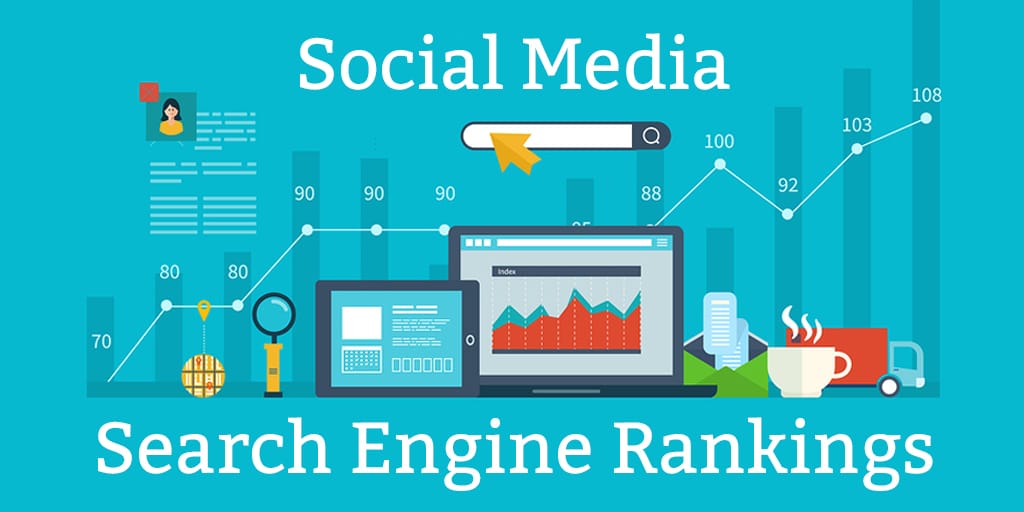In the digital marketing landscape, search engine optimization (SEO) and social media marketing are often viewed as distinct strategies. However, they are more interconnected than many businesses realize. Leveraging social media can significantly enhance your search engine rankings, driving more organic traffic to your website. Here’s how social media marketing contributes to improved SEO and overall search engine visibility.

1. Increased Website Traffic
One of the most direct benefits of social media marketing is the potential to drive traffic to your website:
- Content Promotion: Sharing high-quality content on social media platforms can attract clicks and visits to your website. Each visit signals to search engines that your content is valuable, potentially boosting its rankings.
- Referral Traffic: Social media can generate significant referral traffic, which is considered a positive ranking factor. More visitors from social media indicate to search engines that your site is popular and relevant.
2. Improved Brand Awareness and Recognition
Social media marketing enhances brand visibility, which can positively impact search engine rankings:
- Increased Mentions: As more people become aware of your brand through social media, they are more likely to mention or link to your website in their content, boosting your site’s authority.
- User Engagement: Higher engagement rates on social media (likes, shares, comments) can lead to increased brand searches, which search engines interpret as a sign of credibility and relevance.
3. Content Indexing
Social media can facilitate faster indexing of your content by search engines:
- Shareability: When you share new blog posts or website content on social media, search engine crawlers can discover your links more quickly, leading to faster indexing.
- Social Signals: While the direct impact of social signals (likes, shares, comments) on search rankings is debated, they can indicate the popularity and relevance of your content, prompting search engines to take notice.
4. Enhanced Link Building Opportunities
Social media platforms can serve as a springboard for effective link-building strategies:
- Content Sharing: When your content is shared widely on social media, it has the potential to attract backlinks from other websites. Quality backlinks are a critical factor in SEO, signaling to search engines that your content is trustworthy and authoritative.
- Networking with Influencers: Engaging with influencers and industry leaders on social media can lead to collaborations and backlinks to your site, further enhancing your SEO efforts.
5. Local SEO Benefits
For businesses with a physical presence, social media marketing can enhance local SEO:
- Location-Based Targeting: Platforms like Facebook and Instagram allow businesses to target local audiences effectively, driving foot traffic and local searches.
- Google My Business Integration: Active social media profiles can complement your Google My Business listing, improving your visibility in local search results and maps.
6. User Engagement Metrics
Search engines consider user engagement metrics when determining rankings:
- Bounce Rate: If users click through to your site from social media and quickly leave, it can negatively impact your bounce rate. Engaging content that keeps visitors on your site longer signals to search engines that your content is relevant.
- Time on Site: High engagement on social media can lead to more extended visits on your website, indicating that your content is valuable and relevant, which can positively influence your SEO.
7. Content Diversity and Rich Media
Social media encourages diverse content formats, which can boost SEO:
- Visual Content: Sharing videos, infographics, and images on social media can increase user engagement and shares, leading to more traffic and potential backlinks.
- Content Repurposing: Social media allows you to repurpose your content in various formats, reaching different audiences and increasing visibility across multiple channels.
8. Building Relationships and Community
Social media provides a platform for building relationships with your audience:
- Customer Engagement: Engaging with your audience through comments, messages, and shares can foster a sense of community and encourage user-generated content, enhancing your brand’s credibility.
- Feedback and Insights: Social media allows you to gather feedback and insights from your audience, helping you refine your content strategy and improve SEO performance.
9. Tracking and Analytics
Social media platforms offer robust analytics tools that can inform your SEO strategy:
- Performance Insights: By analyzing which types of content perform well on social media, you can adjust your SEO strategy to focus on similar topics and formats that resonate with your audience.
- Keyword Discovery: Social media can reveal trending topics and keywords relevant to your audience, providing valuable insights for your SEO keyword strategy.
Conclusion
While social media marketing and SEO may seem like separate entities, they are intrinsically linked in today’s digital marketing landscape. By leveraging social media effectively, businesses can improve their search engine rankings, enhance brand visibility, and drive more traffic to their websites.


No responses yet